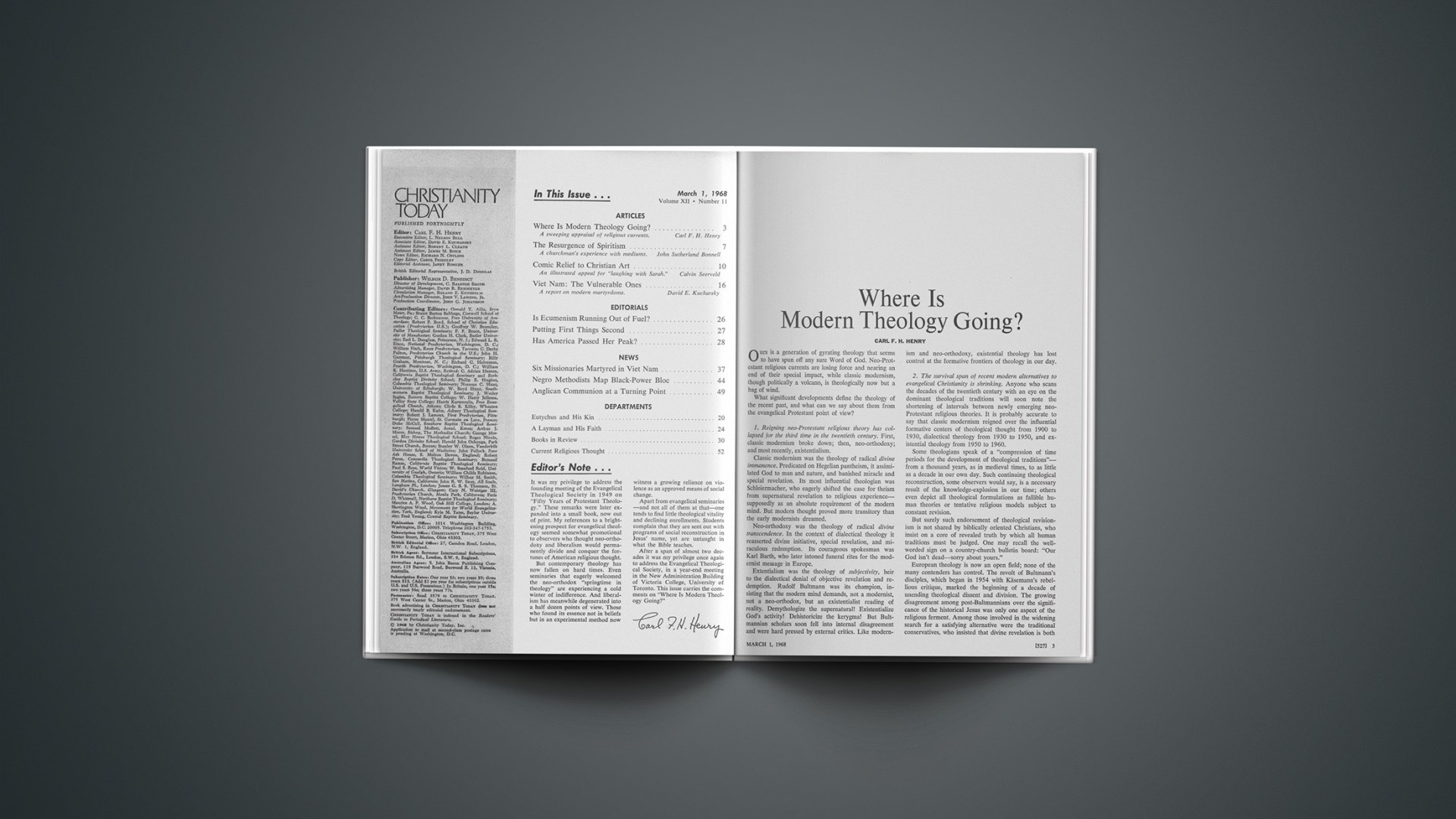It was my privilege to address the founding meeting of the Evangelical Theological Society in 1949 on “Fifty Years of Protestant Theology.” These remarks were later expanded into a small book, now out of print. My references to a brightening prospect for evangelical theology seemed somewhat promotional to observers who thought neo-orthodoxy and liberalism would permanently divide and conquer the fortunes of American religious thought.
But contemporary theology has now fallen on hard times. Even seminaries that eagerly welcomed the neo-orthodox “springtime in theology” are experiencing a cold winter of indifference. And liberalism has meanwhile degenerated into a half dozen points of view. Those who found its essence not in beliefs but in an experimental method now witness a growing reliance on violence as an approved means of social change.
Apart from evangelical seminaries—and not all of them at that—one tends to find little theological vitality and declining enrollments. Students complain that they are sent out with programs of social reconstruction in Jesus’ name, yet are untaught in what the Bible teaches.
After a span of almost two decades it was my privilege once again to address the Evangelical Theological Society, in a year-end meeting in the New Administration Building of Victoria College, University of Toronto. This issue carries the comments on “Where Is Modern Theology Going?”










